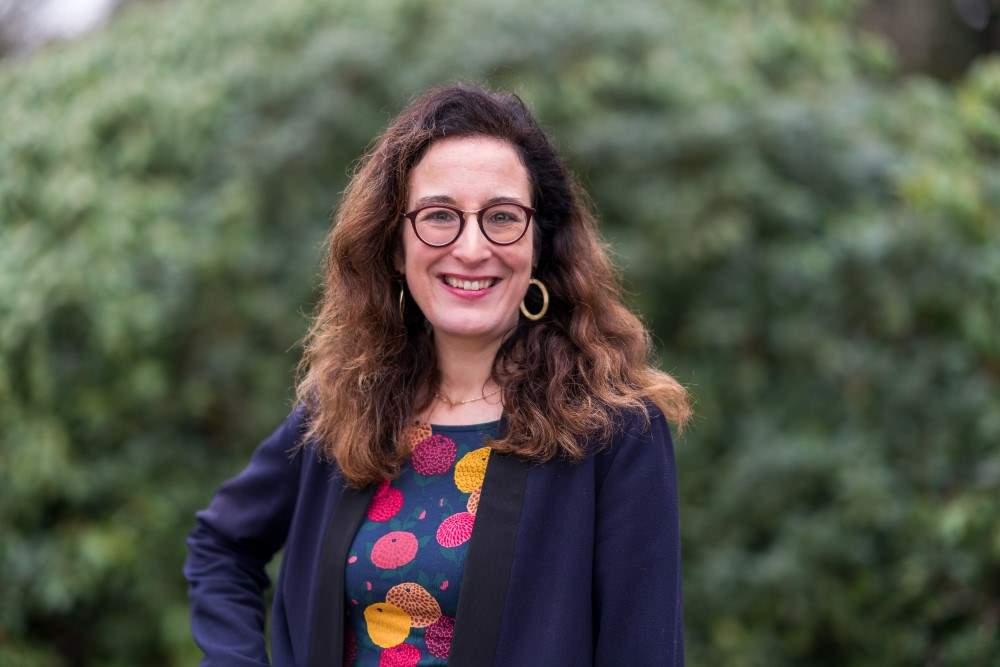‘Investing together in a sustainable future for coming generations’
Het Nationale Park De Hoge Veluwe is a nature conservation area covering 5,400 hectares with a diverse landscape of pine and deciduous woodland, heathland, sand drifts and grassland. The Park is the legacy of Anton Kröller and Helene Kröller-Müller. At the start of the twentieth century, the couple purchased a number of estates where they released wild animals, such as moufflon (small wild sheep), wild boar, red deer, roe deer, and at one point even kangaroos for their own hunting purposes.
Due to financial problems, the Kröller-Müllers ceded the estate in 1935 to a foundation, the Stichting Het Nationale Park De Hoge Veluwe. Since that time, the foundation has been responsible for the sustainable management and running of the Park. In 2022, De Hoge Veluwe attracted 550,000 visitors. On foot or on one of the 1,800 white bicycles dotted around the park, they can take in nature and enjoy the art in the Kröller-Müller Museum. The Park also features examples of remarkable architecture, including the Sint Hubertus Hunting Lodge by the Amsterdam architect Berlage and the Park Pavilion that has won a number of architecture prizes.
Climate robust woodland
Margot Palmen is head of Fundraising at Het Nationale Park De Hoge Veluwe. “The maintenance and management of the Park is a costly affair. People believe that De Hoge Veluwe is fully financed by government, but that is not the case. We have been an independent organisation for more than 87 years, and for the most part – 88% – dependent on grants,” explains Margot. “The money we collect through sponsoring, donations and gifts is spent on special projects. The primary aim is biodiversity conservation. That is one of our greatest concerns as De Hoge Veluwe is home to numerous rare birds, insects and plants. No less than 100 of the species that inhabit the Park are on the Red List of animal species at risk. And due to the rise in temperature in the Netherlands, plants such as the Norway Spruce are struggling to survive. For that reason, we are constantly investing in planting climate-robust woodland.”
Education is the second spearhead of the Park. “‘Children should experience nature’, wrote Helene Kröller-Müller a hundred years ago in the Park’s statutes – in a flowing style and followed by a large exclamation mark. We still today recognise the importance of introducing schoolchildren to nature,” continues Margot. “That is why we plan to renovate our underground museum Museonder. At the end of the day, we want to ensure maximum public access to the Park. And that costs a great deal of money, too.”

‘De Hoge Veluwe is a unique location that occupies a place in many people’s hearts’
Margot Palmen, Head of Fundraising at Stichting Het Nationale Park De Hoge Veluwe
New appreciation of nature
For the two fundraisers at De Hoge Veluwe, the current cash crisis represents an additional challenge in attracting business sponsors. “At the same time, De Hoge Veluwe is a unique location that occupies a place in many people’s hearts,” suggests Margot. The COVID-19 years also delivered one positive outcome: “Many people re-discovered nature and realised that it is a world full of challenges, such as climate change and biodiversity.” Margot also recognises this new appreciation of nature in the private sector. “More and more organisations are accepting their social responsibility and formulating ambitious sustainability plans. Those plans need not include far-off locations; after all, here in the Netherlands, too, we have so many unique landscapes.”
Win-win situation
In every collaboration agreement between a company and ‘the green treasure chamber of the Netherlands’, the key is customisation to arrive at a win-win situation. Margot continues, “We always look for shared goals, listen to the sustainable ambitions of a company and contribute our ideas concerning the possibilities. Our Park Pavilion is the ideal location for meetings, team days, business lunches and dinners. Every year, we invite around forty CEOs and decision makers for a network meeting. In 2022, Unica organised several internal and external events in our Park, offering colleagues, customers and business relations a positive experience. After all, walking, cycling, enjoying art and attending a meeting surrounded by nature is nothing short of a remarkable experience.”
Entrepreneurial and innovative
Over the past few years, Margot has come to recognise Unica as an ‘attractive and entrepreneurial company that thinks in terms of solutions’. And she sees other similarities with her own organisation. “Unica and De Hoge Veluwe both started as family-run businesses in around the same period. Both are independent, forward thinking and always on the lookout for innovative solutions. In 2020, for example, we spread thousands of kilograms of crushed rock from Norway by helicopter to breathe new life into the heathland that had become impoverished and acidified by nitrogen. It was a revolutionary idea developed by our volunteers and researchers at Wageningen University & Research.”
That memory brought Margot to the principles of combined efforts and pride in the work of the organisation. “That too is something I see in Unica. Just like the philosophy that there is more to life than earning money; namely dedication, care and attention for people and nature. Investing together in a sustainable future for coming generations, I hope that Unica and De Hoge Veluwe may continue to do that for many more years!”